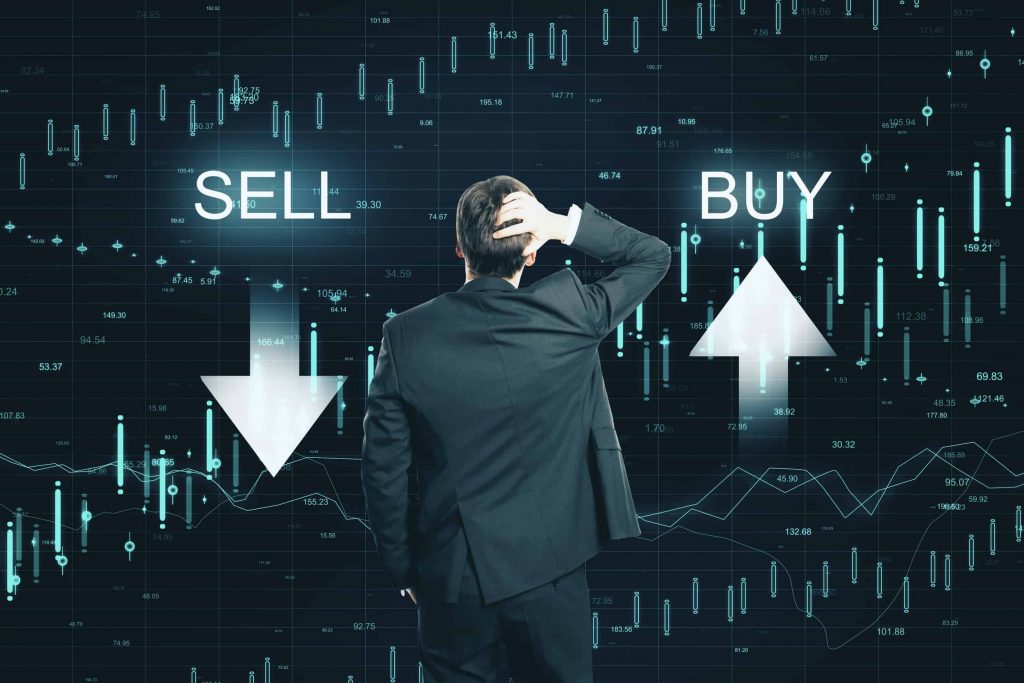People spent substantially more time online over the last year or two due to the pandemic, and criminals quickly took advantage of the situation. Fraudulent activities using the internet increased, so warnings led to a healthy dose of scepticism being felt by many about forex trading. But is forex trading a scam?
To answer this question, you’ll have to understand what forex trading is about, the parties involved, how it is regulated, and the forex market in general. At the end of this article, you’ll be able to answer the question: is forex a scam or legit?

Is Forex Trading a Scam?
First, what is forex? Forex means Foreign Exchange. If you’ve travelled from one country to another and have had to swap your currency for your destination country’s currency, you’re one step closer to understanding forex trading.
The forex market is the largest financial market in the world. It also has a significant impact on the global economy. Every day, trillions of dollars are converted from one national currency to another. This begs the question: why does money get converted from one currency to another? There are a variety of reasons for this. Corporations trade currency for global operations and to reduce risk, whilst banks and financial institutions use it as a means of making a profit.
The major participants in foreign exchange are governments, businesses, and, of course, investors.
Let’s go over the fundamentals of FX trading. You’re not simply trading one currency when you trade forex; you’re trading two currencies against each other. This is referred to as a currency pair – the value of one currency quoted against another. Even though two currencies are involved, the pair functions as a single entity. This is similar to a stock or commodity, and investors can profit when they buy a currency pair and its price rises, just as they can lose money when they buy a currency pair, and its price falls.

Beware of Forex Scams
As much as forex trading is legit, it is also being exploited to scam unsuspecting victims. Here are the most common types of forex scams and how to avoid them.
- Ponzi Schemes: This is one of the oldest tricks in the book. Potential victims are lured in with the promise of advice by a forex expert doing the trading for them and promises of huge returns on investment. Usually, the first investors are paid their interest with the money from new investors. Until it just becomes unsustainable because of the huge return on investment (ROI). These days though, they promise more believable ROI, but eventually, the scam collapses and individuals lose their money.
- Untrustworthy Money Managers: These tend to be more tactical in their approach. They appear very professional and promise to manage your portfolio to earn you a lot of money. Gradually, however, your money dwindles to nothing.
- Signal-Seller Scam: This is another common forex scam. Here, you’re asked to pay a subscription fee for forex signals by people who claim to be able to predict the market, with promises of large profits. Usually, they show you fake evidence of previous price predictions they’ve made. Then after paying, the results don’t match the promise, and your pockets are left feeling lighter.
- Cloned Websites: Easily one of the smoothest scams to fall for. This is when scammers clone or copy trusted websites to defraud unsuspecting victims. These cloned websites look similar to the original ones and usually have similar web addresses. It can be difficult to tell the difference until you’ve made an irretrievable deposit which will never be seen again.
- Scam Brokers: As much as forex is not a scam, there are a lot of fraudulent brokers out there, especially the unregulated ones. Although brokers in the US and UK are heavily regulated, many offshore brokers aren’t, and many are out to defraud investors.
It is easy to fall for these forex scams unless you know what to look out for. The first rule of avoiding such frauds is to learn more about forex trading for yourself. That way, you reduce the possibility of being defrauded. You should also check a Forex broker’s regulatory status and check which regulatory body they are regulated with for added protection.
Forex Regulators
In recent times, there has been tight regulation on forex trading. Although no set body regulates forex trading worldwide, different independent and governmental bodies govern forex regulation. The bodies set rules that all brokers under their jurisdiction must abide by.
There are a lot of regulatory bodies, but the following are considered the major ones:
- European Securities and Markets Authority (ESMA)
- Financial Conduct Authority (FCA) or FSA (Financial Services Authority)
- Commodities and Futures Trading Commission (CFTC)
- Australian Securities and Investments Commission (ASIC)
- Cyprus Securities and Exchange Commission (CySEC)
- National Futures Association (NFA)
- Swiss Financial Market Supervisory Commission (FINMA)
Forex trading in most developed countries is tightly regulated to protect investors from financial risk and fraud. Here’s a complete list of regulatory bodies by Geo.
To avoid falling victim to a fraudulent broker, here are a few things to watch out for:
- Regulatory Compliance: The most important thing to check for is whether a broker is compliant with regulations. Usually, reputable brokers will be registered in compliance with the rules of their operating country. For the US, they would be registered with the Commodity Futures Trading Commission (CFTC) and also be a part of the National Futures Association (NFA).
- Reviews: This is an important step that people overlook. Before choosing a forex broker, read reviews from customers. Reviews rarely lie, especially from forums that cannot be manipulated. Be sure to do this due diligence before putting in your money.
- Currency Pairs Offered: There are common trading pairs that almost all brokers offer, for example, EUR/USD. But what is important for you is that they offer the trading pair in which you are interested. So, crosscheck that before you make your selection.
- Stop-Loss Protection: This feature ensures that your losses do not exceed a threshold. Most brokers offer this feature, but it is essential to double-check before spending any money.
- Customer Service: If you find it hard to get through to a broker, that is a huge red flag. Be on the lookout for negative reviews about a broker’s customer service. You can even put a call through to the broker to get an idea of the service you can expect.
To make things easier, take a look at our list of top forex brokers.
Conclusion
It is safe to say that forex trading is legit as it fuels the international business market. Coupled with the fact that the forex market is strictly regulated to prevent fraud, it can be profitable if handled correctly. Numerous forex scams are out there, so investors should do their research before committing money and must always exercise caution.
Remember, if an offer is too good to be true, it probably is.